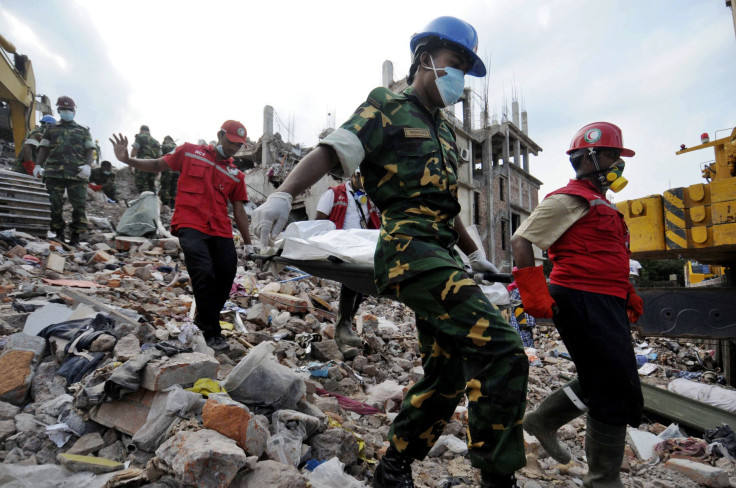Bangladesh Building Collapse: The Factory Reform Plan Wal-Mart (WMT), Gap (GPS) And H&M Refuse To Fund

The collapse of the Rana Plaza factory in Bangladesh two weeks ago has been hailed as the worst industrial accident in the history of the garment industry as the death toll passed 600.
But workers’ rights advocates say major retailers like Wal-Mart Stores, Inc. (NYSE:WMT), The Gap Inc. (NYSE:GPS) and H&M Co., Inc. have refused to back new standards that the activists say are needed to avert a similar disaster in the future.
At least two companies that sold clothes manufactured in the destroyed building -- the cheap British label Primark and Canada’s Loblaw, which owns Joe Fresh -- have scrambled to avoid the ghastly limelight now cast on conditions in Bangladesh’s clothing factories by promising compensation to victims and their families.
Rana Plaza was just the latest chapter in the ongoing saga of poor working conditions in Bangladesh’s sweatshops. Between 2006 and 2010, at least 464 workers died in fires, according to the government. Last November, a fire in the Tazreen clothing factory, which sold items to big-box stores like Wal-Mart and Sears, killed another 112.
The Worker Rights Consortium, a Washington, D.C.-based group, said some of the sector’s biggest buyers refused to sign an agreement to fund an independent inspection program that would monitor factory safety in the country, which is second only to China in garment exports.
“That would legally require companies to monitor factories’ building standards with an independent team of inspectors,” said Theresa Haas, the group’s director of communications.
The two-year program, also backed by the International Labor Rights Program, requires four retailers to pay between $250,000 and $500,000 of revenues derived from Bangladesh-made products per year.
The PVH Corp., which owns Bass, Calvin Klein, Izod and Tommy Hilfiger, has said it would sign the Bangladesh Fire and Building Safety Agreement. But Wal-Mart, Gap, H&M and other retailers have refused, claiming it costs too much.
Gap and H&M did not respond to phone calls and emails requesting comment.
Instead, Wal-Mart has poured $1.6 million to launch a program to teach Bangladeshis fire safety techniques and workplace safety best practices.
“We remain committed to promoting stronger safety measures in factories and that work continues,” Megan Murphy, a spokeswoman for the Arkansas-based big-box store, said in an emailed statement. “Wal-Mart has been advocating for improved worker safety with the Bangladeshi government, with industry groups and with suppliers.”
Haas said the corporation’s so-called Environmental Health and Safety Academy has “no tangible benefits for workers.”
© Copyright IBTimes 2024. All rights reserved.












